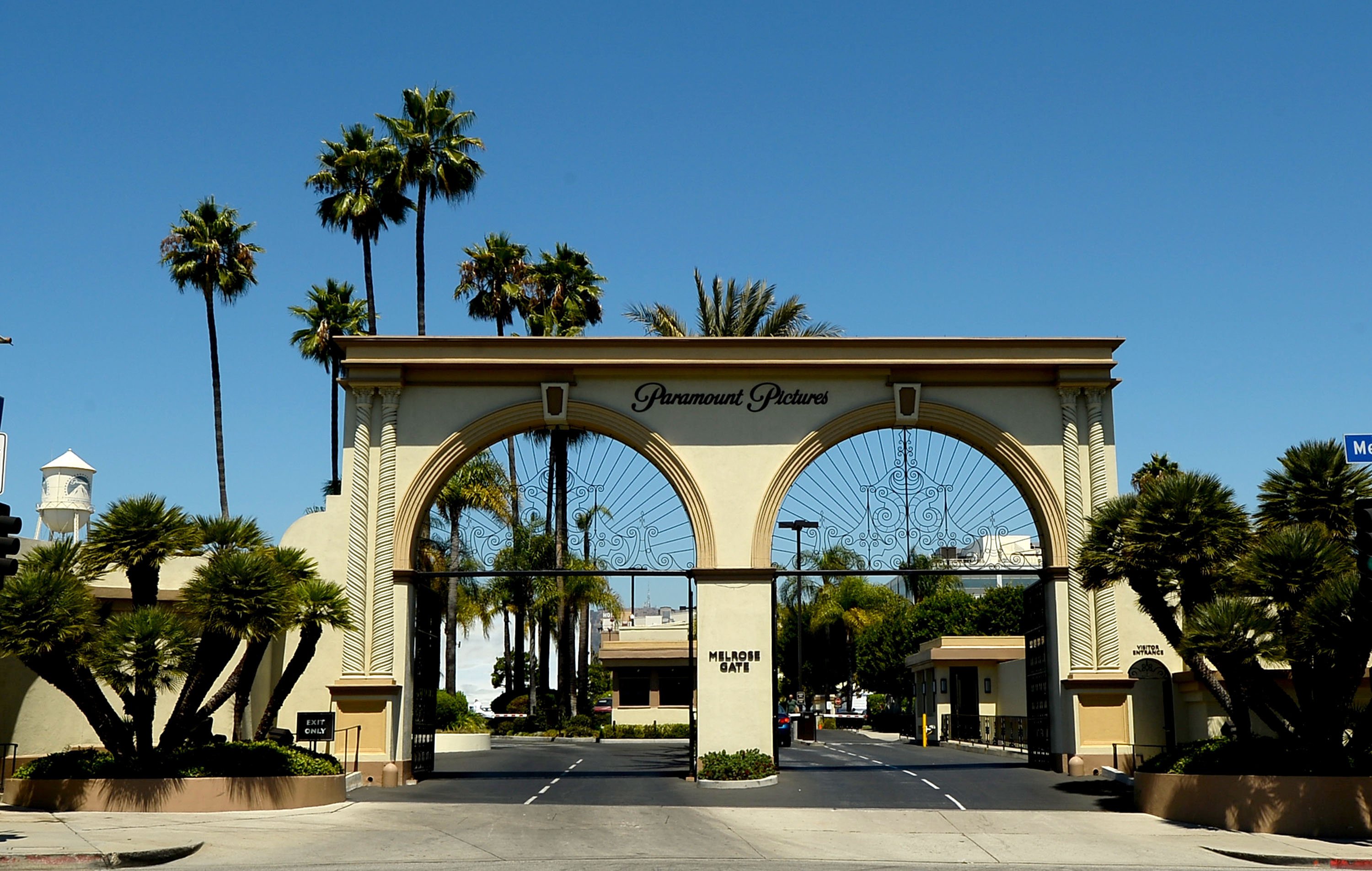
Paris Photo LA, the West Coast offshoot of the long-running French photography fair, celebrates the culture and history of its geographic location like no other art fair we’ve seen. With 80 galleries from 17 countries, there’s something for everyone—from restored prints dating to the late 19th century to Ken dolls recreating Edward Hopper’s iconic Nighthawks—but we suspect Californiaphiles will be especially impressed with the fair’s offerings in its third year (see Paris Photo Los Angeles Is Set to Have Its Best Year Yet—See Why).
1. It’s got a nifty location at Paramount Studios.
The coolest, most uniquely LA thing about the fair is its location: on the lot at Paramount Studios in Hollywood, birthplace of films including Psycho, Rear Window, Grease, Airplane!, and Fatal Attraction. New Yorkers who flew 3,000 miles to attend the fair might be a bit unnerved to find that the majority of the event takes place on the set of a fictional New York where Soho and the Upper East Side are around the corner from one another and there’s a suspicious lack of garbage lining the streets. But once the initial surreality wears off, you’ll be charmed when walking inside one of the faux brownstones and seeing wares from the few galleries lucky enough to score these plum spots. The rest of the fair takes place outside, within three massive hangars.
R.J Arnold, Glass Plate 008-35.
Photo: Courtesy Paris Photo LA.
2. The exhibition “California Unedited!” shows the haunting work of “forgotten” photographer R.J. Arnold.
One of this year’s hallmark exhibitions is “California Unedited!“, a curated collection of rare 19th century photographic material from the archives of “forgotten” photographer R.J. Arnold, who pioneered the practice of retouching by using a moistened lead pencil to smooth away his subjects wrinkles and imperfections.
The photographs are a haunting and often strange portrait of the California of yesterday, but the best thing about the exhibition is how curator Anthony Lepore obtained the prints. “One Thanksgiving about three years ago, after stuffing me, my aunt asked me to walk down to the Historical Society—where she worked—to look at this massive trove of glass pates that someone had donated,” he explained during a press conference. “She wanted to get rid of them because they were taking up too much space….so, I got down, my belly filled with turkey and cranberry, on my knees in this basement and pulled out this slide where there was a shimmering portrait of a young Hispanic girl. And I pulled out another one and there was a Chinese man in traditional garb…and I thought, we have something that could potentially be really amazing here.”
From there, Lepore’s aunt found a conservator (who was also a priest) through her church and he trained a group of retired volunteers—many in their 80s—to carefully restore the plates using horsehair brushes and distilled water.
Juergen Teller, Election Day (2009).
Photo: Courtesy Paris Photo LA.
3. You’re likely to spot a few celebrities.
We spotted Drew Barrymore and Jamie Lee Curtis (who is rumored to be an avid photography collector) at the VIP preview, and heard rumblings of a Brad Pitt sighting at last year’s fair. But even if you miss out on seeing any stars in person, there are plenty to be found on the walls. Our favorites were at Galerie Suzanne Tarasieve, where fashion photographer Juergen Teller has captured Joan Didion in her ubiquitous outsize sunglasses, Pamela Anderson coquettishly reading Plato, and Marc Jacobs in his birthday suit.
Roger Steffens/The Family Acid, Silverlake, August 1977. Printed Matter.
Photo: Courtesy of Printed Matter.
4. Drug references abound.
It wouldn’t be California without a couple of well-placed references to the state’s psychedelic past. At Printed Matter, photos from Roger Steffens’s book “The Family Acid” are on view—his daughter Mary-Kate and son Devon helped Steffens catalogue and digitize his collection of Kodachrome slides that document the countercultures of the 1960s, 70s, 80s, and early 90s. If you’ve been known to partake in California’s finest herbal export, definitely check this one out.
Todd Hido, Untitled #10552-c.
Photo: Courtesy Casemore Kirkeby.
5. Nudity is plentiful and tasteful.
When you think of California, you think of beautiful women, and luckily, this fair has no dearth of that. We recommend visiting Capricious 88 for Ren Hang’s sinewy babes posing with props like snakes and cucumbers, Casemore Kirkeby for Todd Hido’s lo-fi, sun-soaked collages, and Hamiltons, where luscious images by Irving Penn and Helmut Newton are on view. What’s more LA than Penn’s image of a woman undressed and languishing under a table at the famed Chateau Marmont.
LeRoy Grannis, Palos Verdes Cove.
Photo: Courtesy M+B.
6. You can see the work of the “godfather of surf photography.”
Attention all surfer dudes (and surfer dude wannabes): at LA’s M+B gallery, you can see a slew of black-and-white beach shots by LeRoy Grannis, the late “godfather of surf photography.” Credited with being the first to depict the mellow California lifestyle on film, Grannis eventually quit photographing the sport when the fight for the perfect angle and shot became too competitive.
David Bailey, Mick Jagger (1973).
Photo: Courtesy Taschen.
7. The rock n’ roll element feels right at home.
While the Rolling Stones fit comfortably in the category of things and people that “belong” to New York (though Londoners might disagree), their presence at Taschen Gallery‘s booth provides a much-needed element of rock n’ roll to the fair. With shots by David Bailey, Ethan Russell, Dominique Tarle, and several others, the abridged version of the gallery’s inaugural exhibition earlier this year is a must for rock fans who want to see the band in the studio, on the road, and just goofing around being rock stars.
Paris Photo LA takes place from May 1—3 at Paramount Studios in Los Angeles.